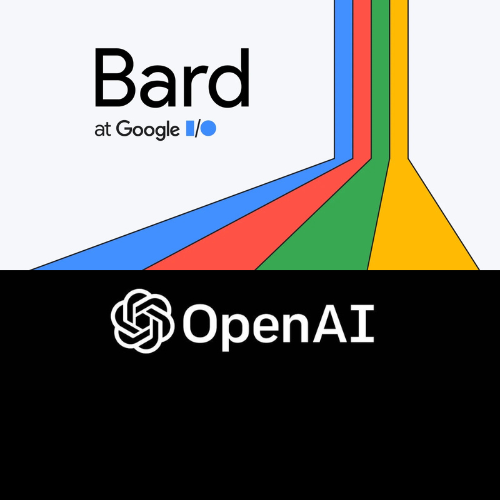Thursday, Alphabet Inc., Google’s parent company, celebrate a nearly 5% stock surge following the announcement of a global expansion and innovative feature addition to their AI-driven chatbot, Bard. The news coincided with an announcement of a different kind: The U.S. Federal Trade Commission (FTC) is launching an investigation into OpenAI Inc.’s popular conversational AI bot, ChatGPT, raising concerns about potential risks to consumer reputations and data.
The conversational AI market, with key players such as Google’s Bard, Microsoft’s Bing, and OpenAI’s ChatGPT, is bustling with activity. These bots are transforming the way we retrieve information online, by providing conversationally formatted responses to user queries. In this evolving field, Alphabet’s stock surge shows the enthusiasm and investor confidence surrounding such AI technology.
Google’s Bard, now available in more than 40 languages and recently deployed to regions like Brazil and Europe, caters to users with a variety of new features. These include modifying the tonality of the bot’s responses, playing answers to requests out loud, and a unique ability to process images for user queries. These developments underscore the promising future AI-powered tools have in replacing traditional online search methods.
However, alongside the optimism, there are also concerns about the potential misuse of these powerful tools. OpenAI’s ChatGPT, backed by Microsoft Corp., is at the center of an FTC probe to ensure that AI technologies do not pose undue risks to consumers.
The FTC’s move is being hailed as a significant development that underscores the growing vigilance of regulators toward the ethical and responsible operation of AI companies. FTC Chair Lina Khan emphasized the need for early vigilance with transformative tools like AI.
ChatGPT has been built on a large language model trained on vast amounts of internet text, enabling it to generate human-like responses. This has propelled a race among various industries to develop their own chatbots.
Despite this competition, the probe raises questions about the regulation of advanced AI systems. Notably, OpenAI’s CEO, Sam Altman, has expressed commitment to working with the FTC and ensuring the technology is safe and pro-consumer.
The call for regulation has been echoed by several leaders in the field, including OpenAI, Anthropic, and Alphabet Inc.’s DeepMind. Even outspoken proponents like Altman and Twitter owner Elon Musk have stressed the need for safety standards, warning of the potential risks that mainstreaming AI could bring.
On the consumer protection front, the FTC has requested detailed descriptions of complaints from OpenAI regarding false or harmful statements made by its products. This comes as part of an inquiry into potential unfair or deceptive practices that may have caused reputational harm to consumers. This scrutiny extends to an incident in March where a bug in OpenAI’s system exposed payment-related and chat history data of some users.
Alphabet’s stock surge and the FTC’s investigation into OpenAI underscores the duality of the AI landscape – an arena of promising innovation and potential hazards. The future of AI innovation will depend on maintaining this delicate balance, ensuring consumer benefits without compromising safety and privacy.
Disclaimer: This article is intended for informational purposes only. It should not be considered financial or investment advice. Always consult with a certified financial professional before making any significant financial decisions.








